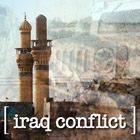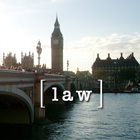
|
NEW OBSTACLES
1 March 2003 The Turkish parliament, under severe public pressure, has voted to refuse to allow US troops to launch a northern campaign against Iraq from Turkish soil. The US administration is reportedly cautious and awaits "clarification" of the vote, presumably clarification of whether or not this is the final word. The use of Turkish soil to organize and effect a northern invasion of Iraq is considered by US military planners to be instrumental to any successful campaign of regime change. But, the US has already made it clear it believes it could go to war without the active northern front. Speculation suggests air power and a rapid advance could compensate for the lost second front. Allies have urged careful diplomacy, as Turkey is a NATO member state, the key strategic military alliance to which the US belongs. NATO had voted for the first time to take collective action to defend one of its states under attack after the attacks of 11 September 2001, but no such NATO resolution exists to recognize the legitimacy of invading Iraq or to compel assistance to an allied state. The tussle is the latest in a series of refusals by key allies, concerned about the precedent set by a 'pre-emptive' invasion, and for their own long-term security should circumstances work against them, Hussein remain in power and/or the US abandon the region after the immediate conflict. These obstacles have turned diplomacy into a game of negotiation for additional benefits, with some suggesting aid in exchange for cooperation. [s]
UPDATE: Last night, US president George W. Bush declared that Iraqi leader Saddam Hussein would have 48 hours to quit his post and leave the country, if he wishes to prevent a devastating military campaign. Dissident European allies of the US insist that diplomatic options have not been exhausted, and they will persist, even in the face of impending war, in their efforts to achieve a "miracle" truce. [Full Story] BACKGROUND: The deployment of 1700 Special Forces troops to the Philippines southern region has sparked controversy over the legality of such action under Philippine law. The Philippine Constitution prohibits foreign military invervention not sanctioned by treaty, and the nation's Supreme Court has previously ruled that visiting American forces may only fire in self defense. [Full Story] |
||||||||||
|
|||||||||||







